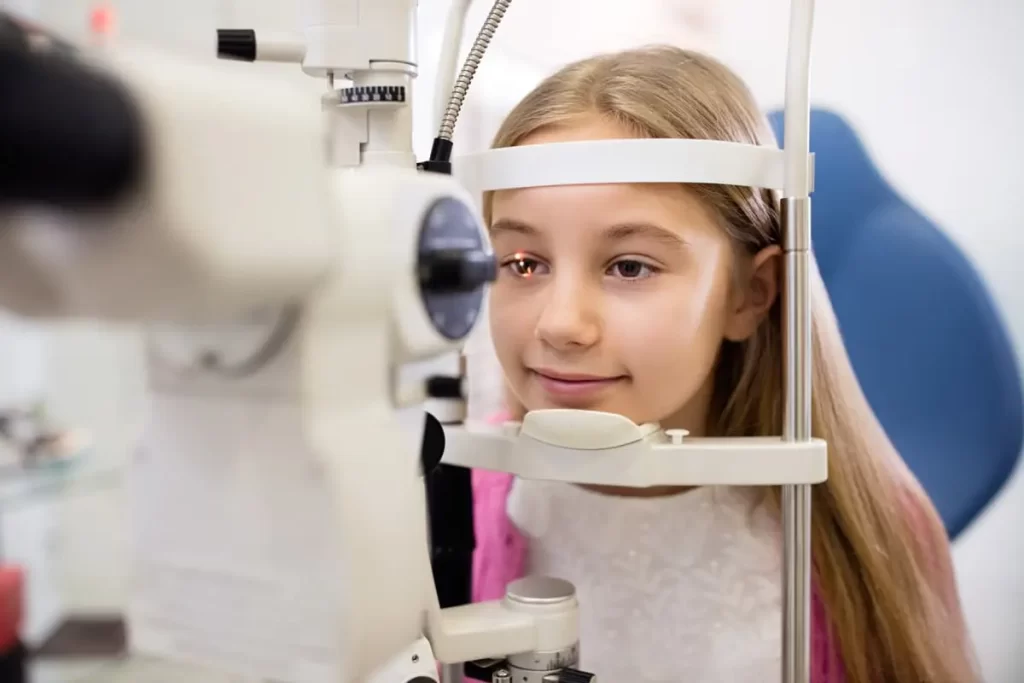Uncovering the In-Depth Meaning of Vision Beyond Simple Clarity
Many people tend to perceive an optometrist as merely a provider of prescriptions for corrective glasses or a source for solutions to dry, fatigued eyes. However, it is vital to grasp that not all visual challenges are solely tied to blurry vision. In fact, there are scenarios where individuals may have eyes that seem perfectly healthy yet experience difficulties such as reading comprehension issues, stagnation in academic progress, or a noticeable decline in concentration and focus throughout the day. Recognising these subtle yet significant signs is crucial for tackling underlying vision issues that might otherwise remain undetected and unaddressed.
At Eyes by Design, we specialise in behavioural optometry, which represents an advanced clinical approach that goes beyond the basic ability to see clearly. Our focus is on comprehending how the entire visual system plays a pivotal role in enhancing learning performance and enabling the effective execution of daily activities. This viewpoint acknowledges that vision is not a static condition; rather, it involves a dynamic interplay among the eyes, the brain, and the body, all working in harmony to create a seamless and effective visual experience.

Diving into the Core Concepts and Advantages of Behavioural Optometry
Behavioural optometry, often referred to as functional or developmental optometry, is grounded in the understanding that clear vision is just the beginning of a comprehensive visual experience. To fully harness the benefits of vision, the eyes must function efficiently, track accurately, focus seamlessly, and communicate information to the brain in a manner that supports movement, posture, memory, and learning processes. This understanding opens the door to a deeper exploration of how we interact with our visual environment.
The holistic approach of behavioural optometry encompasses several essential components:
- Effortless tracking across books, pages, and screens
- Rapid and reliable focusing across a variety of distances
- Effective coordination between both eyes for enhanced performance
- Improved spatial awareness and body control
- Accurate visual processing during real-time activities
A behavioural optometrist conducts comprehensive evaluations of these interconnected systems. The primary objective is to assess not just whether you can see clearly, but also if your visual system is functioning optimally to enhance your daily activities and social interactions. This thorough assessment can reveal insights that standard vision tests often miss, leading to more effective solutions.

Recognising Crucial Signs Indicating Visual Challenges May Affect Your Life
1. Is Your Child Finding Reading Difficulties Despite Being Bright and Articulate?
A child who displays intelligence and expressiveness but struggles with reading may not necessarily have a learning disability; they could be experiencing visual dysfunction. Symptoms such as skipping lines, using fingers to track text, or reporting that words appear to blur or shift positions are critical signs that warrant further evaluation. At our practice, we conduct in-depth assessments of how the eyes perform during prolonged near tasks like reading, where even slight inefficiencies can often go unnoticed during standard testing procedures.
2. Are You Suffering from Frequent Headaches or Eye Strain After Prolonged Screen Time?
Many individuals tend to underestimate the seriousness of digital eye strain, overlooking symptoms such as pressure behind the eyes, headaches at the end of the day, or difficulties focusing. These could indicate a breakdown in visual coordination. Our comprehensive behavioural assessments are designed to determine if the muscles responsible for eye alignment and focus are being overworked due to the high demands of screen-based activities, thus helping to alleviate these discomforts.
3. Is Your Child Exhibiting Poor Coordination, Clumsiness, or a Reluctance to Engage in Sports?
Vision plays an integral role in facilitating movement and coordination. If a child seems hesitant to participate in ball sports, struggles to catch objects, or has trouble maintaining balance, these behaviours may be connected to how their brain interprets visual-spatial cues. Such patterns often indicate challenges in visual-motor integration rather than a lack of athletic capability, highlighting the need for a deeper examination of their visual processing skills.
4. Is an Articulate Child Struggling with Written Assignments?
Many children who are naturally curious and verbally expressive may find themselves underperforming academically due to the excessive effort required for tracking and processing written material. Behaviours such as fidgeting, daydreaming, slow task completion, or a reluctance to read could stem from unrecognised functional vision issues, rather than simple disinterest or defiance. Addressing these issues can lead to significant improvements in their academic performance.
5. Are You Encountering Persistent Issues Even While Wearing Glasses?
Some patients continue to face challenges despite numerous adjustments to their prescription glasses. They might struggle to relax their eyes, encounter depth perception complications, or never feel visually comfortable. This often signals underlying issues with eye teaming or neurological processing rather than straightforward refractive errors, necessitating a more thorough investigation into their visual health.

Preparing for a Comprehensive Behavioural Optometry Evaluation
At Eyes By Design, we employ a thorough, systematic, and highly personalised approach to our assessments. We meticulously examine the intricacies of how your eyes move, collaborate, and respond to various demands. Our primary focus areas include:
- Control and precision of eye movements
- Flexibility and endurance in focusing
- Alignment and coordination of the eyes
- Visual memory and cognitive load management strategies
- Coordination and spatial reasoning abilities
Based on our detailed assessments, we develop a personalised plan that may involve therapeutic lenses, vision therapy, or practical modifications to your environment, whether at school or in the workplace. This tailored approach is designed to enhance your visual experience and overall functionality, ensuring that you can engage fully with your world.
Understanding the Impact of Vision on Everyday Life and Learning Efficiency
If you or your child are facing daily challenges that conventional eye examinations fail to clarify, a behavioural optometry assessment may uncover the underlying factors contributing to these frustrations. This process transcends the quest for clearer vision; it encapsulates the pursuit of more comfortable seeing, increased confidence in movement, and improved learning efficiency, ultimately enhancing quality of life.
At Eyes By Design in Kincumber, we are committed to helping individuals unlock the full potential of their vision through comprehensive behavioural care. Our holistic strategy is aimed at addressing the complex nature of vision and its profound impact on overall quality of life, ensuring that our clients can thrive in all aspects of their daily activities.
This article aims to enhance understanding and knowledge regarding general eye health topics.
It should not replace professional advice, diagnosis, or treatment.
Always consult your healthcare professional before incorporating this information into your health regimen.

Dr Nicholas Altuneg
For over two decades, my utmost passion has been to empower individuals of all ages to lead improved lives through enhanced vision. At Eyes by Design, we maintain that vision encompasses far more than the ability to see clearly or read small print from a distance; it fundamentally shapes your perceptions and responses at every moment of the day.
Read more about Dr Nick
The Article: Signs You Need a Behavioural Optometrist first appeared on https://writebuff.com
The Article Behavioural Optometrist: Key Signs You Shouldn’t Ignore Was Found On https://limitsofstrategy.com




